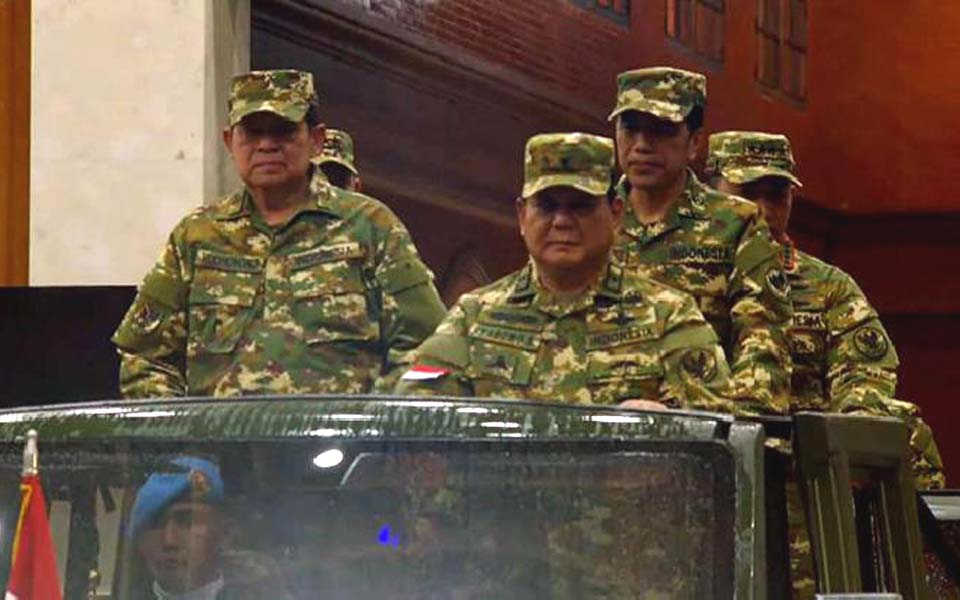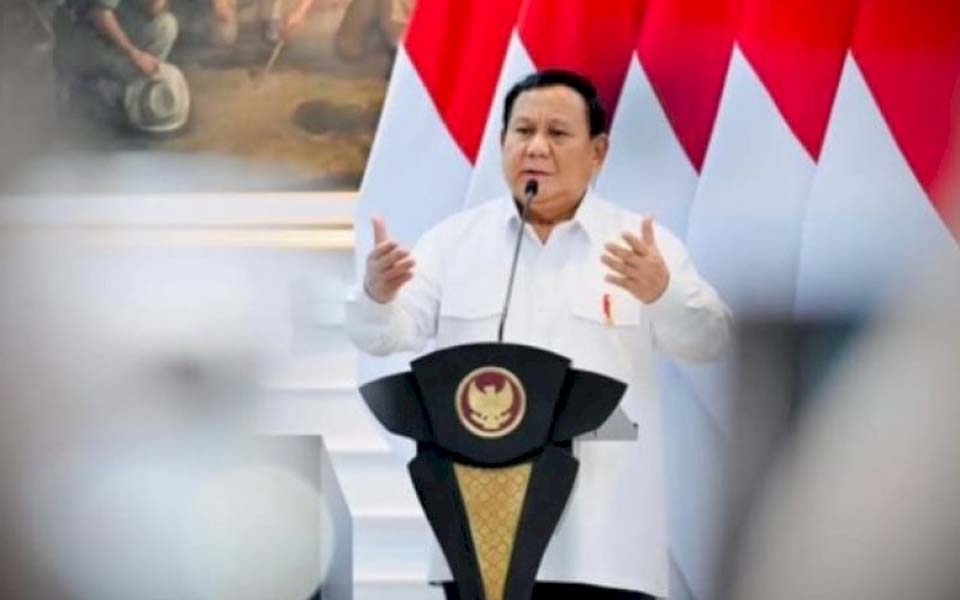[The following is a translation of a statement by the national executive of the National Student League for Democracy (LMND) in response to the resignation of a number of regional leadership members on June 20, 2003.]
Viva liberation!
The resignation of comrades who held positions on executive bodies in regions I (North Sumatra), III (Jakarta-Bogor-Tangerang-Bekasi) and IV (West Java), which was done publicly through mailing lists and e-mail postings on June 20, simply reflects the existence of different views on the development of the international and national economic and political situation, the development of the movement in the objective consciousness of the masses and at the same time the experience of the dynamics of the subjective capacity of the organisation -- in the process of formulating LMND’s strategies, tactics and program in the framework of building a revolution.
We view the differences which emerged in viewing the objective needs of the movement which materialised in the strategies and tactics of this program as quite normal, because for a relatively long period, these comrades had not been active in the political and organisational work under the coordination of the LMND. We can defend this statement ideologically, politically and organisationally to the League’s mass base and to the broader masses in the context of the relevant mechanisms of the organisation.
At LMND’s 3rd Congress, it was decided that the pressing program which had to be undertaken by the democratic movement was to push forward the process of democratisation in Indonesia and to overthrow the regime of New Order [the regime of former President Suharto] collaborators -- the government of President Megawati Sukarnoputri and Vice-president Hamzah Haz -- which has become a puppet of imperialism in Indonesia -- along with pushing for the establishment of an alternative government constituting real people’s power. The differences which emerged became principles in the political line which was adhered to by a number of LMND comrades who held executive positions in regions I, III and IV, which veered away from the political line which had been decided upon by the LMND [at its congress]. This was what then created the difference of opinion in viewing the development of the objective economic and political situation, the development of mass the consciousness of the masses and the dialectical development of the organisation. These differences, between a number of LMND members with regard to the current political line being followed by the organisation, in practical political and organisational terms, meant they followed a different path. Given the differences in political line between these comrades and that of the League, their political and organisational practice has also taken a different course. This has led them to finally decide to act separately and not to acknowledge the unity of action under the League’s leadership or, as has been the case with the majority of them, to drop out of activity in the League. The comrades who declared that they would resign were comrades who in political terms, in the end choose a political line which was different from the political line of LMND as a whole, and in organisational terms, no longer wanted to work under the League’s leadership and in the end ceased to be active.
Perfectionism in the field of ideas which is not accompanied by practical movement work to bring this ideas into reality, only results in a minority groups of progressive intellectuals engaging in debates in seminars, mailing lists and the like. The inability to see and fully experience all of the dialectics of the objective situation and the subjective capacity of the organisation results in petty bourgeois pessimism which becomes a justification [for such pessimism] in the ideological areas as well as political and organisational practice. Differences of opinion, factionalism and splits are all things which are common in a left organisation. The democratic character in the practical politics and the organisation makes it possible for various kinds of ideas to emerge which are founded on those organisational principles which are the basis for decisions which are ratified in the organisation’s constitution. United political and organisational action is always subordinate to this constitutional foundation based on the dialectical developments of the objective situation and internal conditions of the organisation. This is called democratic centralism.
With regard to the question of the 2004 general elections, in LMND’s view the coming elections will obviously not produce anything real in the context of progressive change. The 2004 elections are merely a tool of consolidation for the remnants of the New Order and the fake reformists. The formulation of the draft law on participation in the 2004 elections was contaminated from the beginning by the interests of the regime, a regime which is clearly anti-democratic and anti-poor.
The program to build a united front to intervene in the 2004 elections which was put forward by the LMND national executive was based on an analysis of the objective development of the situation among the masses. First of all, the masses have discovered the correct method to struggle for their interests, in the form of mass actions. And secondly, because the mass consciousness of the people has shifted from a simple consciousness around economic issues to a consciousness which is anti-political elite. This kind of consciousness cannot be left without leadership. The tactic of golput [Golongan Putih, White Movement, to boycott the elections or not marking the ballot paper] can provide no leadership to the growing level of mass consciousness, instead it will keep this mass consciousness from [becoming aware of] its obligation to take [state] power.
So it is absolutely necessary to take the lead in explaining this. An alternative tactic capable of answering the dead-lock of the movement which is in [a state of] suspended animation at the moment must be advanced. It is on this basis that the LMND decided to take the lead in the student movement, by taking up a program to build a united front to intervene in the in the 2004 elections which will become a political alternative for the people to learn, and to struggle to change their situation.
The national executive of the LMND wishes therefore to make the following points with regard to the resignation of comrades from the executive bodies of regions I, III and IV:
1. As explained above, the comrades who have resigned from LMND are individuals who held executive positions in regions I, II and IV. Meaning, that in explaining this to the comrades of other democratic organisations, these resignations do not represent the resignation of territorial units but the individuals holding positions in the LMND territorial structure.
2. These public resignations must be seen in its entirety, in terms of the ideology and politics of the organisation, as a part of the dialectical activities of the LMND, and as a part of the struggle for democracy by students and the people. No revolutionary movement can exist without revolutionary theory and practice.
3. In order to maintain the unity of the political and organisational activities of LMND, the resolution of this issue will be pursued through the organisational mechanisms [as laid out] in the organisation’s constitution.
4. We call on the entire democratic opposition movement in Indonesia to join together in a United Front of Democratic Opposition which we will push to step forward to intervene in the 2004 general elections in order to advance the campaign to overthrow the Mega-Hamzah regime and to extend the structure of the mass struggle as part of the process in establishing government from, by and for the people.
This statement was issued as an analytical basis for LMND comrades and other comrades [in different organisations] in order that they do not view this issue simply from one angle, and in continuing to use the organisational methods which we adhere to so that the accountability of the national executive of the LMND to its mass base and the masses as a whole, remains the primary priority. Individual cadres must be prepared to stand accountable for their statements and responses and any consequences which follow to their respective work collectives.
OVERTHROW THE MEGA-HAMZAH REGIME!
FORM AN ALTERNATIVE GOVERNMENT!
Jakarta, June 25 2003
National Executive
National Student League for Democracy
s/-
Iwan Dwi Laksono, Chairperson
Gigih Guntoro, General Secretary
[Translated by James Balowski.]















